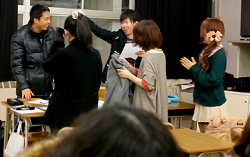Empirical foundations of behavioral learning theory
To Aristotle, experience is the source of knowledge; the external world provides the foundation of human learning. The external world becomes the basis for sense impressions, which the mind interprets. The individual discovers the laws of nature through reason as the mind takes in data from the environment [2].
Ideas and the external world interact, with the external world serving as the source of knowledge. Aristotle contributed the concept of associated memory that is prominent in many of today’s learning theories. Recalling an idea triggers other ideas within the experience of the individual. The more an individual associates ideas the more likely recalling one idea will trigger the other [2].
The clean slate
Aristotle’s philosophy became known as Empiricism, which is reflected in the writings of British philosopher John Locke. Locke revolutionized the contemporary view that people were born with inherent skills, notions, and evil [13, 4]. He proposed that an individual is born tabula rasa, a blank tablet upon which the environment and society write what the individual becomes [14]. In other words, children are born neutral with the potential to become anything; what children become depends on how they are nurtured by the environment. The content of the mind originates in the senses. Understanding the mind is a function of breaking ideas into simple units; complex ideas are collections of simple ideas [2].
The behavior
Empiricism tends to overlap with behaviorist learning theories [2], such as those proposed by Watson, Thorndike, and Skinner. Behaviorism views the process of learning to be a behavior change. It holds that the purpose of learning is to produce behavior change that will ensure the survival of the human species [15]. Although behaviorism has lost favor, it still serves a fundamental role in education and human development. For example, the teacher creates an environment that draws out desired behaviors and extinguishes undesired behaviors. Human resource development and military training rely heavily on behaviorist theories to develop and enhance the performance of individuals and groups within the constructs of the organizational mission [4].
###




